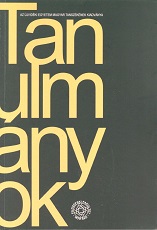„QUI MULTORUM MORES VIDET ET URBES, AZ HASZNÁL”.
“QUI MULTORUM MORES VIDET ET URBES, IS USEFULL”.
The Sense of Alieness and Self-fashioning in the Autobiography of Miklós Bethlen
Author(s): Attila RizsanyiSubject(s): Hungarian Literature, Theory of Literature
Published by: Филозофски факултет, Универзитет у Новом Саду
Keywords: autobiography; Miklós Bethlen; peregrinato academica; travel writing; alienness; the formation of self; literacy; ars apodemica
Summary/Abstract: The autobiography of Miklós Bethen (1642–1716), a Transylvanian statesman and memorial writer, titled Bethlen Miklós élete leírása magától [The Self-Portrayal of the Life of Miklós Bethlen], written during the time of his captivity, presents an accurate portrayal of his studies in Transylvania, while dedicating multiple chapters to his pilgrimage, including travelling to England, France and Venice in his youth. The three trips ending the first volume of his autobiography differ from each other in numerous respects, but each of them maintains the textual conventions characteristic of the descriptions of European learning pilgrimages (peregrinatio academica) of his times. Miklós Bethlen – as opposed to travellers of the 18th century who mainly kept diaries or wrote letters recounting their experiences – chronicled his experiences several decades after they took place. The retrospective distance, however, does not dissolve the sense of alliennes, but rather emphasizes it. In my paper, I explore the manifestations of the sense of alienness in the descriptions of his pilgrimage, as well as the incorporation of these manifestations into the self. I propose that the literacy and perspective gained during his trips abroad might have had an effect on the formation of the autobiographical self, but beyond this, that it also had an effect on the structuring of the text itself. The manifestations of aliennes could represent the basis of the analysis of the plane of self-representation in the autobiography. The possibility of applying the results of the studies of apodemica in interpreting the influence of the era on the autobiography, or in interpreting the autobiography in the European context arises. Namely, the personal travel instructions intended for the greater general public do no only influence the course of the pilgrimage itself, but also the manner of recording those experiences.
Journal: Tanulmányok
- Issue Year: 2017
- Issue No: 2
- Page Range: 139-156
- Page Count: 18
- Language: Hungarian

